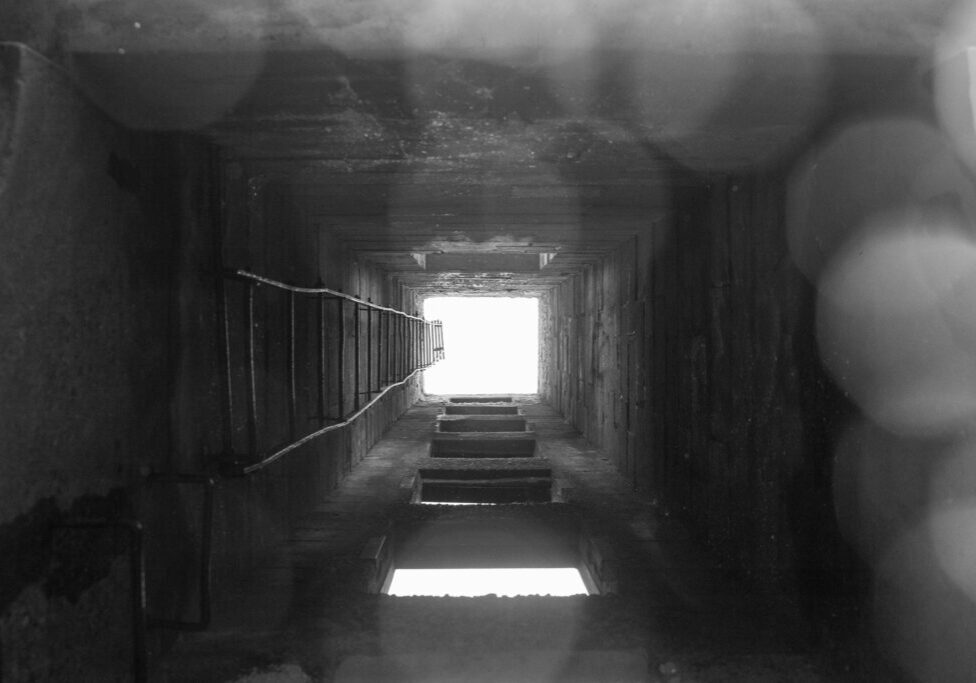Needing to be Known

It’s almost dinnertime and I’m bustling around the kitchen. I’m so overstimulated by the noise of the TV and the kids yelling at each other that I want to remove my ears. I’m playing referee while doing mental math, trying to time out how long it will take for each component. How quickly can I chop the vegetables, and will they get mushy before the pasta finishes? I’m rifling through the papers the kids brought home to know if I can trash them for space on the counter. I’m reminded of the permission slip that needs my signature. I add it to the ever growing “attend to” pile that often gets splashed with water from cooking, or worse, oil. Frantic, but determined. Just then my husband comes in and asks if there’s anything that I need and I wince. I feel a tightening in my chest.
To answer him honestly I will need to stop and reflect. I will need to point out my inadequacy. I will need to trust his desire to care for me. But I cannot bring myself to do it. I tell him I’ve got it handled and then continue in the chaos.
The middle child in a lower middle-class family, I learned to overextend myself early. My older brother, a lofty dreamer, bucked the social norms driven into us. My younger sister, wild and angry, fought to be her own boss. I saw them both trying to leave our family; one floating away and the other one running. I felt myself as a blanket thrown over them, trying to be a safe place, trying to soften every family conflict, trying to keep everyone in.
My parents grew up in rural Pennsylvania. They came from small and dirty towns, towns where sissies were mocked and crybabies discarded. They both faced hardships that modern kids can’t fathom; both grew up poor but insanely proud. Sure, they were cold and a little hungry but they never would dream to ask their parents, all depression-era babies, for more than what they were given. If they wanted more, they had to work for it. But they’d only want more if it meant no one else lacked. They had a strong sense of fairness and self-sufficiency. As I peer back generations, I see tenacity and firmness. No handouts. No nonsense. No fluff.
It was then ingrained in me that the goal of life was to become completely whole by oneself. To need no one. Burden no one. I sought to make my parents proud and to keep the peace.
Sadly, for all of us really, I was a deep feeler and there was something that kept coming up. As much as I knew that I shouldn’t ask for more, there seemed an endless pit within me. As a child, asking for more of any unnecessary thing was disciplined, not always by punishment but by natural consequence – removal from good standing. Shame. I was told that I didn’t NEED more, I just wanted. I wanted more affection and attention and food and companionship and quite frankly, I was exhausting.
I recognized in myself a longing that I alone could not tend to. I wanted to be seen by someone else. I wanted a connection that would overlook my lacking self-sufficiency. I prodded at my parents, after their long days at work, to see who I was becoming, to play with me, to hear my fears and ridiculous hopes. But their discomfort toward my emotional bid was palpable.
A wound for me started there. That feeling – a mixture of sorrow and embarrassment, when I named the void within me and asked for help, only to be rejected – is the feeling that shaped my life.
As I grew, the need for connection remained. I was battling myself in every relationship because not only did I recognize how impoverished my soul felt, I also had experienced the harsh reality of pouring myself out only to receive judgment. I had become determined to feel seen but only ever felt exposed.
I had no balance in my relationships. I’d strip myself down in order to weed out the fearful. I’d feel justified in my exposure and depth. I would find myself oversharing and then intensely reading the faces before me, over-analyzing every raised eyebrow, every glance behind me. I wanted to know if they could hang with a person whose filter rarely caught.
One night, as a senior in high school, I went to my parents’ room as they watched TV. I yearned for them to know me before I went to college, so I steadied myself. As a final plea I stood on their treadmill, telling them every single thing I could think of going on in my life. Dad, face never turning, ignored all of it. Mom responded occasionally but I could sense how uncomfortable I was making her. Finally, in desperation for some sort of emotional response I blurted that I was still a virgin, “in case they were worried.” There was total silence to follow and after some time a “that’s good.” My mind was racing, watching their faces to see any sign of interest or concern and wondering how to cover up my humiliation. But they just continued watching the screen ahead of them as I slipped out of the room. My shame was magnified. I’d thought “they had made me but did not want to know me.”
Of captivity
I had a home within me
A place where you too dwelled
Now I stand amidst the ruin of it.
The voice you placed inside of me,
the song you wrote with me,
Silenced.
Guilt taunted “Is God good, all the time?”
Shame had swallowed my voice.
How can I sing the songs of gladness
When devastated and laid bare?
Remember me, Lord,
as humiliation strips me down.
My gladness is that someday
the accuser who tears me down within,
the tormenter who exposes me
and tells me I am nothing,
will one day be exposed, as nothing,
will one day, too, be silenced.
Psalm 137, adapted
It was around this time that a friend shared the gospel with me. I had heard that Jesus knew everything we’d ever done and died for us anyway. And Christians began to be his body for me – to carry the weight of my life, to respond to my bids for connection. I fell in love with God and his church. I felt a real presence there in the beginning. I felt His comfort in my sorrows and His peace on my path.
But then repetitive prayers began.
My marriage has been marked by hardship; depression, suicidal ideation, anxiety, infertility, and miscarriage. And in these places of profound despair, I prayed to God. I prayed for healing and kindness and love and honestly a baby, like a whole lot. But it started to feel unholy. I started to feel like a burden.
Was I asking for too much? Okay, I’ll do everything within my own power first.
Too often? I mustn’t grovel.
Were my desires sinful? Fine, I will show Him that I am “good”. I will earn favor.
Why could I not just take what I was given with gratitude?
Again, I felt the shame of my need overtake me. The pit of my destitute humanity put me right back in those awkward feelings of my youth. It was easier to bear the weight of an unspoken, unmet need than to show my longings and be denied them.
So here is what I found: it is easy to stop longing if you make no space for it. Self-reflection doesn’t come effortlessly with our screens and obligations. You can cram so many whims into your head without a single ounce of your unique perspective. You can distract your heart for a time.
But not forever.
Lord, you see me. In the darkest folds of my heart, you shine light.
In the recessed embarrassments of my brain, you tenderly look.
You created me as I am now, and as I am with you in eternity.
You see who I am not yet.
You adore your creation.
Let me hold still as you look at me.
May I not flinch.
Let me trust your love as you gaze.
Put your hand on my back as I walk
back to You, to glory.
Psalm 139, adapted
Truly, years passed as I tried to hide those needy parts of myself. I tried to show myself as capable, faithful and wise. I kept myself busy and distracted but all the while I was squirreling away and shoving down the uncomfortable questions and hope deferred. All those hidden parts were getting stale and ugly. Frantic, but determined. I wanted to cling to faith as the pile grew, but I was teetering on the edge of falling away. I was terrified that rifling through this growing unbelief would prove to me that God was a fraud.
I was ashamed of myself, hiding behind shadows and fig leaves. The thought of vulnerable honesty before God terrified me. I had been vulnerable with humans who told me I was too much.
If fallen people, much like myself, balked at my heart – how could a holy God not?
As I began slipping, I called out to Him.
It was jarring for me to look within, at all the mess. I kept uncovering deeper reasons for my longings and feeling phony. I realized that my loving actions were often motivated by my desire to earn love from people or from God. I was stumbling into questions of faith that I didn’t have answers for; confusing verses and ideologies. I wanted to shut it down.
But in all my years of hiding it was only ever ME who didn’t know me. He had always seen the things I didn’t have the heart to discover.
I walk myself through the shame of exposure often. I recoil after an evening of vulnerability with friends without refusing future gatherings. I grieve when spoken needs go unmet by my spouse without stepping back into the dark. I stare wide-eyed at the memories of frenzied clawing for fulfillment without heaping guilt onto my own head.
It doesn’t come naturally for me to remain open to God or to others. I often have to be prompted to stop and reflect. It is still uncomfortable to confess that I can not fulfill my every need. But I remember the relief it was to finally express to God my heartache and unbelief. And God’s people have shown me again and again that I am safe. Eden within us, we can be naked before Him, acknowledging sin, yet without shame.
Kasey Cannon enjoys watching Judge Judy on Facebook reels. She spends much of the day planning for home projects that may never happen, all while the housework is left unattended.
She hopes that someday people will call her mindful and lighthearted and she’s investing in therapy to that end.



